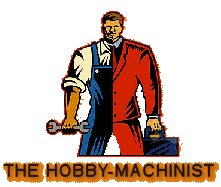- Joined
- Mar 26, 2018
- Messages
- 2,724
What lathe are you using today? I'm not opposed to something the size of a Sherline, and at that price I would simply pull the trigger today because it wouldn't require a lot of planning (or money).
Here's a dumb question - with a small lathe (Sherline etc) with very little mass, am I still able to cut harder materials by way of reducing the DOC?
I have an Enco 110-2031 (same as the Grizzly G9249 - link below). It is an import 12x36 with an open quick change gearbox. The 12" lathes and a few 10" ones have easy support for metric threading with few change gears as well as a power cross feed. Both are desirable features.
Yes you can take light cuts in tough materials, but to a limit. Tough materials will create larger cutting forces which will deflect the tool and either create chatter or limit your accuracy. The lighter the machine the more trouble you will have with this. There is a minimum depth of cut before the tool starts to rub. Other operations like parting may be completely unsuccessful on a small lathe where a bigger one would have no problem.
I've done some bigger work where I wish I had the rigidity of a 13" lathe, but I've been able to slow down and take lighter cuts. The whole time I was thanking myself I had as big of a lathe as I do.
But.... if I were doing miniature work, it would be overkill and I could have gotten away with a smaller machine.


